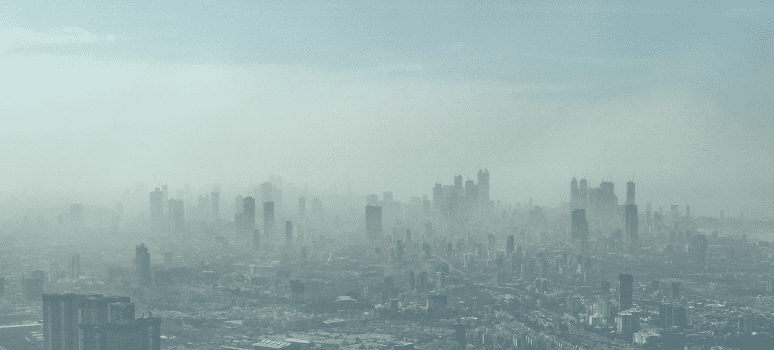
How does pollution affect our health? Biological medicine considers toxicity to be a major factor in disease. We now know that it may also be one of the causes of degenerative diseases, such as Alzheimer's disease..
There is no single defining cause of neurodegenerative diseases. While they can be genetic in origin, a tumour or a vascular accident can also trigger them. We now know that environmental factors are important; contamination is presented as part of the genesis of a diagnosis of dementia.
The evidence for this assertion is to be found in a epidemiological study carried out in London by St. Georges University and Kings College. The conclusion he comes to is that increased exposure to nitrogen dioxide increases the chances of developing a neurodegenerative disease, especially Alzheimer's, by 40 per cent. Therefore, although pollution cannot be said to be a cause, the authors of the study do point to it as a determining factor.
The study, which followed 131,000 Londoners between 2005 and 2013 and their exposure to pollution, has its limits and leaves two questions: how does this pollution act on the nervous system? can we prevent neurodegenerative diseases by limiting exposure to pollution?
As the authors of the study explain, "The cause of neurodegenerative diseases is unknown, it is multifactorial. While toxicants from environmental pollution have numerous pathways to the brain, how and when they influence neurodegeneration is still a matter of speculation.
How does pollution affect each age group?
- in young children, exposure to traffic pollution can be linked to poor cognitive development. Continued exposure can cause neuroinflammation and alter the brain's immune response in youth.
- In maturity, the risk of accelerated dementia may involve the interaction between genes and environment, as has been shown in different studies..
Air pollution, a global health problem
While the direct influence of pollution on neurodegenerative diseases is under study, what we do know well is the consequences of the effects of air pollution on the environment4.5 million people worldwide die each year from this cause.
The people most at risk are those living in low- and middle-income countries, but that pollution is behind 25 per cent of stroke deaths or 43 per cent of neuropathy deaths gives an idea of the risk we face.
The European Environment Agency considers that road traffic is one of the largest emitters of air pollutants in Europe and recommends that authorities take action to reduce car use. The Global Burden of Disease 2017 study concludes that pollution is directly responsible for 21,000 deaths in Spain.
According to EFE VERDE, the cities in which the limit for suspended particulate matter - set at 50 micrograms per cubic metre - was most frequently exceeded, in addition to the cities where the limit was exceeded were Madrid and Valladolid, were La Coruña, Santander, Seville, Valencia, Zaragoza, Granada, Huelva, Lérida, Murcia, Puertollano (Ciudad Real) and Talavera de la Reina (Toledo).
The big question is: if the authorities do not act to reduce pollution, what can we do at home?
How do we combat the effects of pollution?
At Biosalud Day Hospital we are aware of the influence of the toxicity of certain substances on the nervous system and, in general, on our health. In fact, every day we detect how environmental factors contribute to the onset of diseases such as fibromyalgia, allergies or Alzheimer's disease.
In our department of Environmental Medicine we develop personalised treatments with the aim of "cleansing" the organism of all toxic agents and developing lifestyle habits that compensate for exposure to these agents.
In addition, our "Biosalud MethodThe general protocol, based on biological medicine, defines a specific treatment phase for the "detoxification and restoration of the body's regulatory systems". Our lifestyle and exposure to environmental agents can be triggers of the genetic load that predisposes us to disease, if not a cause of syndromes and diseases on their own.

